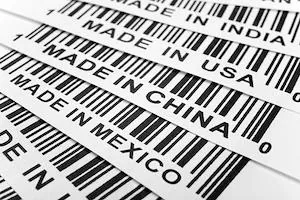Joint Owner of a Trademark Registration May Assign Undivided Interest
In a decision issued October 19, 2010 in re: “Camuyrano, Cecilia Ida vs. La Orquídea Shop Argentina S.A. – Cease of use of trademark” (Docket No. 10450/01), Division II of the Federal Court of Appeals on Civil and Commercial Matters confirmed that joint owners of trademarks may freely dispose of their undivided interest without the consent of the other owners, except in those cases where the joint owners have imposed contractual restrictions on such acts.

The plaintiff, joint owner of the trademark LA ORQUÍDEA in International classes 31 and 42 together with Patricia and Susana Camuyrano, had filed a complaint against La Orquídea Shop Argentina S.A. requesting that the defendant be enjoined from using the mark LA ORQUÍDEA. Also, prior to commencement of the court action, the plaintiff had opposed the assignment of one-third of the mark LA ORQUÍDEA from Patricia Camuyrano to the defendant, but the opposition was rejected by the Argentine Trademark Office.
The plaintiff argued that the other joint owners of the trademark had never asked for her consent to share the registration and use of the trademark LA ORQUÍDEA with a third party, and that she had no interest in doing so. The plaintiff also argued that section 9 of the Trademark Law No. 22,362 should be applied; according to this provision “[a] trademark may be registered jointly by two (2) or more persons. The registered owners shall act jointly to license, transfer and renew the mark; any of them may file oppositions against the registration of a trademark, file the actions provided for in this law for the protection of the trademark, and use it, unless there is a stipulation to the contrary.”
In turn, the defendant contended that each joint owner had been using the trademark LA ORQUÍDEA for the same business (flower shop) independently, in different shops and in direct competition, as all shops were located in the City of Buenos Aires.
The appellate court upheld the lower court’s decision that had rejected the complaint. In so deciding, Division II held that section 9 of the Trademark Law No. 22,362 should not be applied, as one of the joint owners only wanted to assign and undivided one-third interest of the trademark, and not the trademark in its entirety. Therefore, it concluded that the rules of co-ownership set forth in the Civil Code should be applied, and each joint owner might exercise, in respect of his part, exercise the rights derived from the property without the consent of the other joint owners.
Finally, Division II pointed out that this position is based on previous case law that established that the joint owner’s restriction to unilaterally transfer the trademark should not be confused with the situation that applies when the joint owner wishes to dispose of his share of the trademark. In that case, the transfer will be valid, except in those cases where the joint owners have imposed contractual restrictions on such acts (according to Division III, Docket No. 2237/97, dated February 26, 2002).
This insight is a brief comment on legal news in Argentina; it does not purport to be an exhaustive analysis or to provide legal advice.